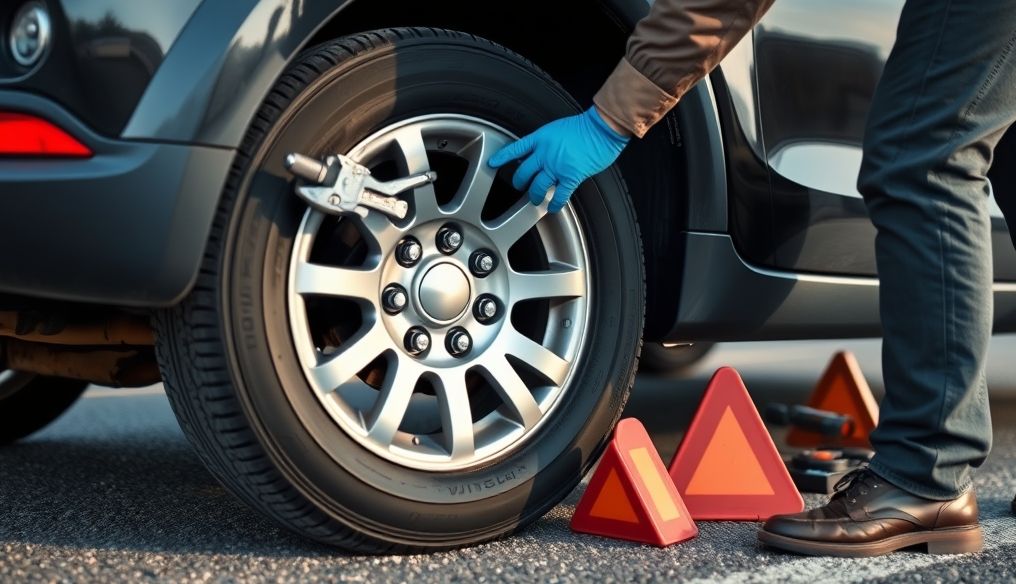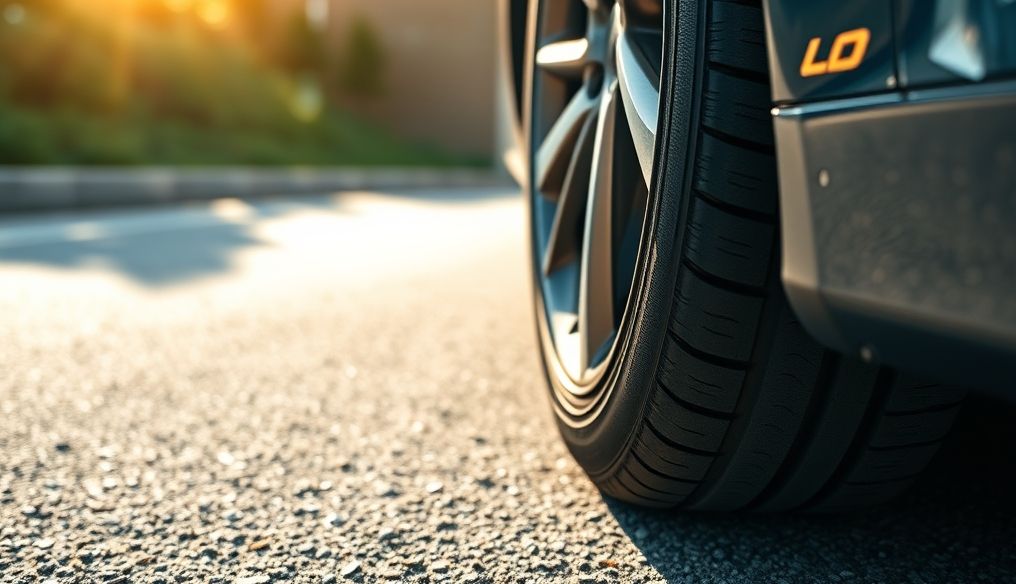Are Wider Tires Really Better for Your Car? A Comprehensive Guide
Wider tires have long been associated with sporty performance and visual appeal in the automotive world. But are these tires the best option for all cars and in all conditions? To answer this question, we must deeply understand the advantages and disadvantages associated with this type of tire and how they affect various aspects of the driving experience.
1. What are Wider Tires?
Wider tires, simply put, are tires with a larger tread width than the standard tires recommended by the car manufacturer. Tire width is measured in millimeters and appears in the tire code (e.g., 225/45R17, where 225 is the width). Wider tires are often chosen to improve the appearance of the car or to enhance performance in specific conditions.
2. Advantages of Using Wider Tires
- Improved Grip and Control: Wider tires provide a larger contact area with the road, increasing grip, especially in corners. This leads to better vehicle control and reduced risk of skidding.
- Better Performance in Dry Conditions: In dry conditions, the larger contact area of wider tires improves acceleration and braking.
- Attractive Sporty Appearance: There is no doubt that wider tires give the car a more sporty and attractive look, which is preferred by many car enthusiasts.
- Improved Vehicle Stability: Wider tires contribute to improved vehicle stability at high speeds, making driving safer and more stable.
3. Disadvantages of Using Wider Tires
- Increased Fuel Consumption: Due to increased rolling resistance, wider tires consume more fuel compared to standard tires.
- Deteriorated Performance in Wet and Icy Conditions: Wider tires may lose grip in wet and icy conditions due to the difficulty of draining water or snow from under the tire.
- Increased Road Noise: Wider tires are often noisier than standard tires, which can affect passenger comfort.
- Negative Impact on Ride Comfort: Wider tires may make the ride harsher due to the lower sidewall height of the tire.
- Increased Tire Cost: Wider tires are usually more expensive than standard tires.
- Faster Tire Wear: Wider tires may wear out faster due to increased pressure on the contact surface.
4. Factors to Consider Before Choosing Wider Tires
Before deciding to install wider tires, several factors should be considered:
- Type of Vehicle and Its Use: Are you driving a sports car or a family car? Do you primarily use the car in the city or on the highway?
- Prevailing Driving Conditions: Do you drive in an area with a dry or wet climate? Do you experience icy roads in the winter?
- Budget: Are you willing to pay more for wider tires and increased fuel consumption?
- Vehicle Specifications: Make sure that the wider tires are compatible with your vehicle's specifications in terms of load and speed.
- Refer to the Owner's Manual: The owner's manual always contains recommendations on appropriate tire sizes for your vehicle.
5. How Do Wider Tires Affect Vehicle Performance?
Wider tires affect many aspects of vehicle performance, including:
- Acceleration: In dry conditions, wider tires can improve acceleration due to increased grip.
- Braking: Wider tires can reduce braking distance in dry conditions.
- Cornering Control: Wider tires provide better cornering control due to increased lateral grip.
- Comfort: Wider tires may reduce ride comfort due to the lower sidewall height of the tire.
- Fuel Consumption: Wider tires increase fuel consumption due to increased rolling resistance.
6. Are Wider Tires Suitable for All Cars?
The short answer is no. Wider tires are not suitable for all cars. Cars designed for standard tires may not benefit from wider tires and may suffer from some of the disadvantages mentioned above. It is always best to stick to the tire manufacturer's recommendations or consult a specialist.
7. Alternatives to Wider Tires
If you are looking to improve your car's performance without resorting to wider tires, here are some alternatives you can consider:
- Improve Tire Quality: Choosing high-quality tires can improve performance without having to change the tire size.
- Improve Suspension System: Improving the suspension system can improve vehicle control and comfort.
- Reduce Vehicle Weight: Reducing vehicle weight can improve acceleration and braking.
8. Tips for Choosing the Right Tires
When choosing the right tires for your car, follow these tips:
- Consult the Owner's Manual: The owner's manual contains valuable information about recommended tire sizes and appropriate tire pressures.
- Consult a Specialist: A tire specialist can provide you with advice based on your needs and budget.
- Compare Different Brands and Models: There are many different brands and models of tires, so take your time to compare them.
- Read User Reviews: User reviews can help you get an idea of tire performance in real-world conditions.
- Don't Buy the Cheapest Tires: Cheaper tires may be tempting, but they are often of lower quality and wear out faster.
9. Conclusion
Wider tires can offer some advantages in terms of grip and sporty performance, but they also come with some disadvantages such as increased fuel consumption and deteriorated performance in wet conditions. Before deciding to install wider tires, you should consider your car type, its use, prevailing driving conditions, and your budget. Ultimately, the decision depends on your individual priorities and needs.
10. Frequently Asked Questions About Wider Tires
- Can I install wider tires on any car? No, you must ensure that the wider tires are compatible with the vehicle's specifications.
- Do wider tires increase the car's power? No, wider tires do not increase engine power, but they can improve the transfer of power to the road.
- Are wider tires safer? In dry conditions, wider tires can be safer due to increased grip, but in wet and icy conditions, they may be less safe.
- How much do wider tires increase fuel consumption? It depends on several factors, but in general, wider tires can increase fuel consumption by 5-10%.




